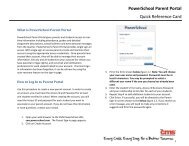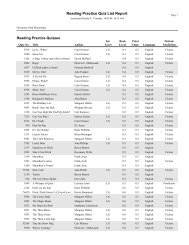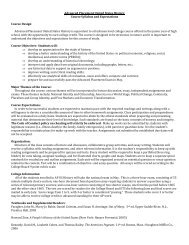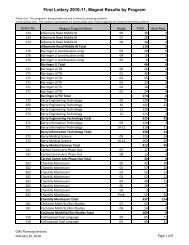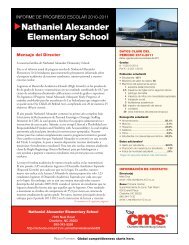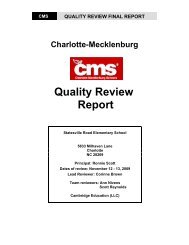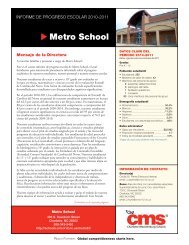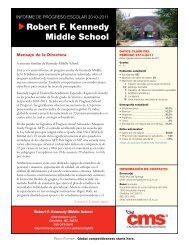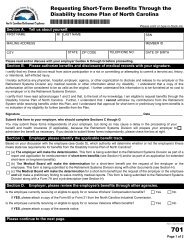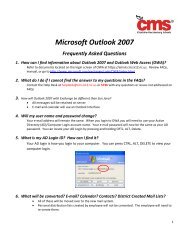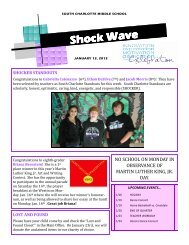2012.2014 Draft Tech Plan 3 20 12 - Charlotte-Mecklenburg Schools
2012.2014 Draft Tech Plan 3 20 12 - Charlotte-Mecklenburg Schools
2012.2014 Draft Tech Plan 3 20 12 - Charlotte-Mecklenburg Schools
Create successful ePaper yourself
Turn your PDF publications into a flip-book with our unique Google optimized e-Paper software.
• The CTE Student Site provides online student access to course materials, resources, activities and assignments. Online class<br />
assignments, documents, class reviews and resources are available to CTE students and can be accessed 24/7. Self-paced review,<br />
make-ups for extended absences and timely results of student progress are available for teachers.<br />
• CTE continues to move forward in development of online, blended and fully instructional courses for the <strong>20</strong><strong>12</strong>-13 school year.<br />
Professional development for teachers is not just necessary but imperative. Integration occurs when teachers understand when and how to<br />
use technology as a teaching tool to maximize student learning. Teachers are given the opportunity to learn how to implement new<br />
technology, collaborate and share activities and strategies.<br />
Common Core / Essential Standards<br />
As the Common Core State Standards and North Carolina Essential Standards are adopted and assessed, the increased use of technology is<br />
expected to support the implementation of curriculum and instruction through the expansion of learning time and accessibility of resources.<br />
Collaboration is a vital component of the new standards, allowing both students and teachers the opportunity to achieve instructional<br />
flexibility to best meet student needs. The ability to collaborate outside the classroom introduces a global platform to both students and<br />
teachers.<br />
Response to Instruction<br />
Responsiveness to Instruction (RtI) is a research-based process of instruction, assessment and intervention. The process allows schools to<br />
identify struggling students early, and provide appropriate instructional interventions in academics and behavior to increase the likelihood<br />
for student success. The reauthorization of the Individuals with Disabilities Education Improvement Act (IDEA, <strong>20</strong>04) and the passage of<br />
the No Child Left Behind Act (NCLB, <strong>20</strong>01) stresses the use of instruction and interventions that are scientifically research based, as well as<br />
the delivery of effective academic and behavior supports to improve student performance. Additionally, RtI provides a multi-tiered model of<br />
interventions that offers effective educational practices for schools to bring high-quality instruction. <strong>Tech</strong>nology that supports the CMS RtI<br />
model includes but is not limited to:<br />
Measures of Academic Progress (MAP) - A MAP assessment is delivered over the web and is aligned to national and state curricula and<br />
standards in reading and math. MAP assessments provide actionable data about where each child is on their unique learning path. MAP<br />
adapts to a student’s responses as they take the test. Every test item on a MAP assessment corresponds to a value on the RtI Scale (for Rasch<br />
Unit), so educators gain a deep understanding of what a student knows.<br />
Reading A- Z - Reading A-Z is a member-based website that provides online curriculum resources. Each month, Reading A-Z adds new<br />
books, lesson plans and other resources, thus continually expanding its wealth of materials. The website has more than 2,500 downloadable<br />
books (including English, Spanish, and French versions) and thousands of teaching and learning materials.<br />
21



